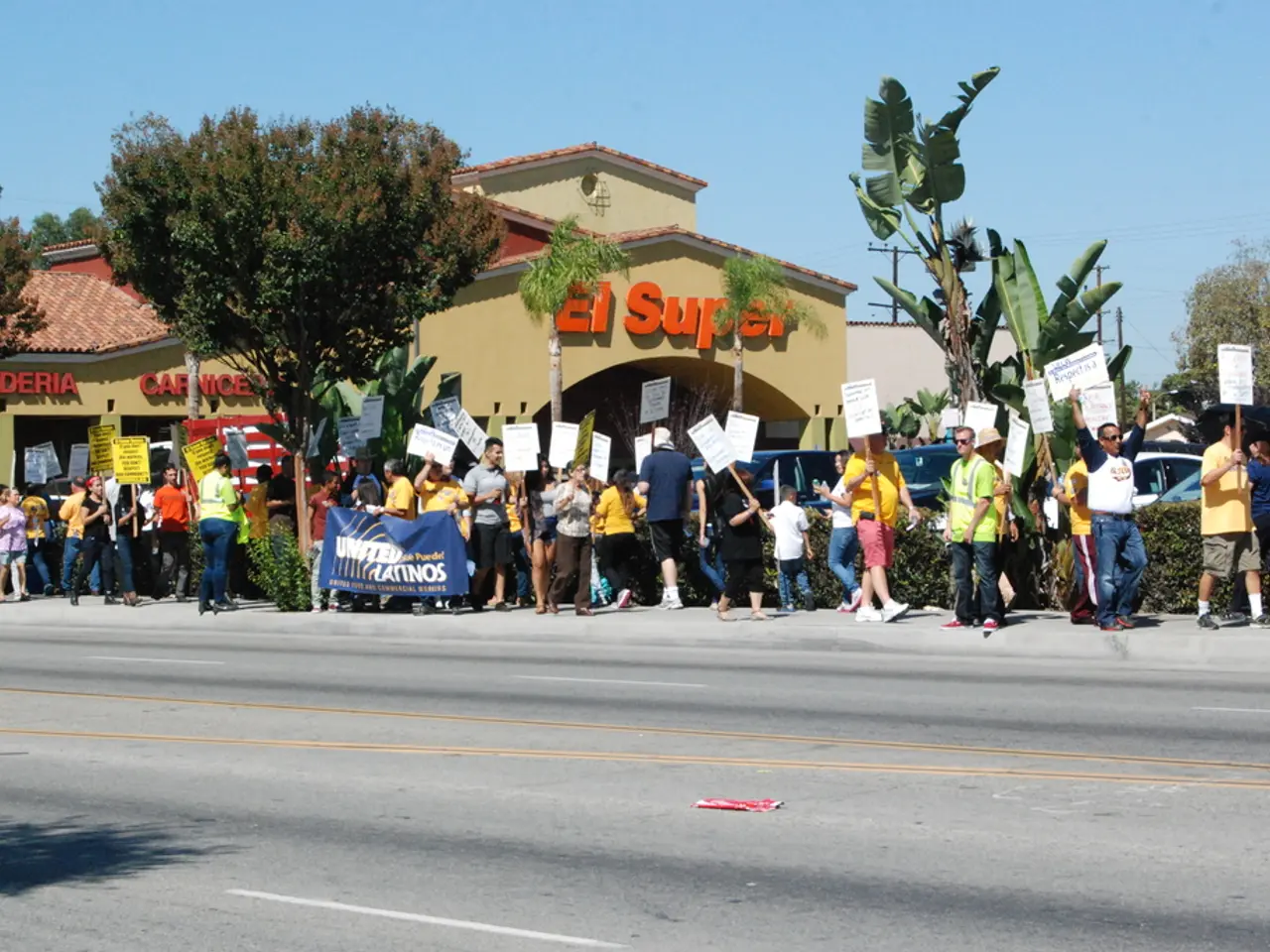Strategies for Leveraging WhatsApp in Political Campaigns
WhatsApp, the popular messaging app, is increasingly being used by political campaigns worldwide. Its quick and efficient nature makes it an ideal tool for disseminating information and updates on campaigns.
The app can be utilised to connect with voters and volunteers, mobilise supporters, raise funds, and increase poll turnout. WhatsApp messages, which can include text, photos, videos, and voice messages, are encrypted, ensuring privacy and security.
One of the key advantages of WhatsApp is its ability to send messages directly to people's phones, regardless of whether they are online or not. This feature ensures that important campaign updates are not missed.
Political campaigns can also use WhatsApp groups for easy communication between team members and supporters. These groups can be created for specific regions or demographics, allowing for targeted messaging.
WhatsApp is also interactive, enabling users to make quizzes, polls, and surveys to determine the target audience better. Notifications can be tracked so that you know who has opened them and when.
It's recommended to research how WhatsApp works in your country or region, create a list of contacts who will be involved with the campaign, choose a group name that's easy to remember but doesn't reveal too much about what you're doing, and send out regular updates to keep people interested in following along.
The app is available in more than 60 languages and is free to use, making it accessible to a wide audience. WhatsApp can also be integrated with AI-powered chatbots and CRM tools for more efficient campaign management.
In political campaigning, WhatsApp is primarily used for localised micro-targeting, voter engagement, and real-time feedback. Parties use WhatsApp to circulate tailored messages at the constituency or ward level, enabling highly personalised outreach based on voter data and demographics.
The best practices for using WhatsApp effectively in political campaigns include micro-targeting messages, real-time interaction, building local networks, integrating with data-driven platforms, and ensuring message personalisation.
More broadly, political campaigns are evolving towards richer messaging formats that embed videos, interactive buttons, and branded messages to improve voter engagement across messaging platforms, including future WhatsApp-like services.
In summary, WhatsApp is a powerful tool for political campaigning, allowing for quick information dissemination, public updates, and mass outreach. By following best practices, political campaigns can reach voters more personally and efficiently, increase voter mobilisation, and adapt quickly to changing political environments.
| WhatsApp Use in Political Campaigning | Best Practices | |----------------------------------------|------------------------------------------| | Localised micro-targeted message sharing | Use voter data to craft tailored messages | | Real-time voter feedback and reactions | Adjust messages based on immediate response | | Grassroots volunteer network building | Create and maintain active local WhatsApp groups | | Data integration with algorithmic apps | Combine WhatsApp outreach with apps that track and analyze voter data | | Personalised communications | Segment messages based on voter preferences and issues |
- Social media platforms like WhatsApp are increasingly becoming integral to modern political campaign strategies, especially with its efficient and encrypted messaging features.
- By establishing WhatsApp groups for specific regions or demographics, political campaigns can facilitate targeted messaging and real-time interaction with their supporters.
- In the realm of policy-and-legislation, politicians can leverage WhatsApp's survey and quizzing capabilities to gather insights on voter preferences and concerns.
- The use of AI-powered chatbots and CRM tools can further optimize the management of political campaigns by automating routine tasks and providing analytics on voter behavior.
- In the entertainment sphere, viral content shared through social media, including WhatsApp, plays a significant role in shaping public opinion and influencing voters.
- As technology continues to evolve, political campaigns can anticipate the development of messaging platforms with richer formats incorporating videos, interactive buttons, and branded messages, aiming to improve voter engagement overall.




